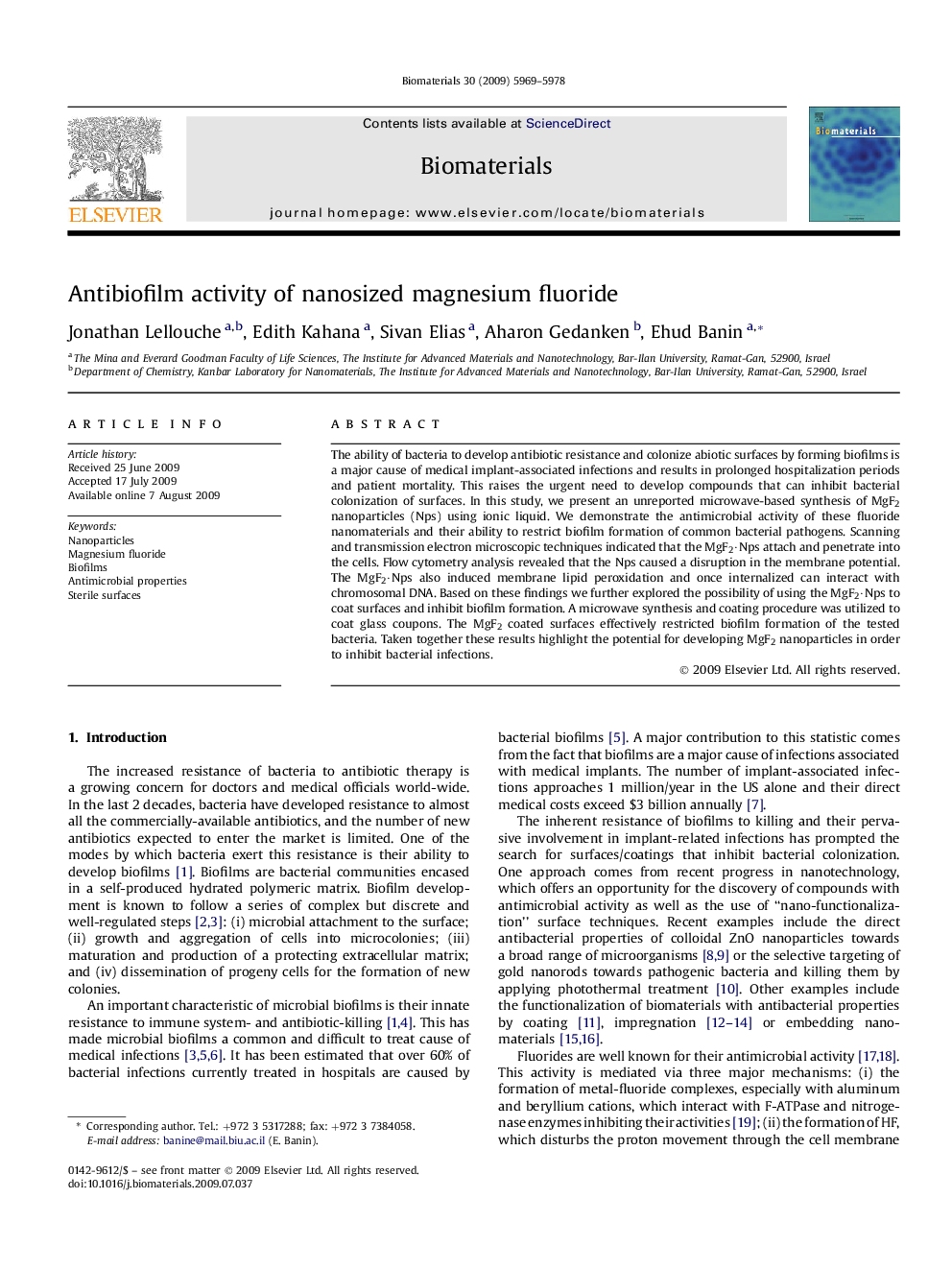| Article ID | Journal | Published Year | Pages | File Type |
|---|---|---|---|---|
| 9738 | Biomaterials | 2009 | 10 Pages |
The ability of bacteria to develop antibiotic resistance and colonize abiotic surfaces by forming biofilms is a major cause of medical implant-associated infections and results in prolonged hospitalization periods and patient mortality. This raises the urgent need to develop compounds that can inhibit bacterial colonization of surfaces. In this study, we present an unreported microwave-based synthesis of MgF2 nanoparticles (Nps) using ionic liquid. We demonstrate the antimicrobial activity of these fluoride nanomaterials and their ability to restrict biofilm formation of common bacterial pathogens. Scanning and transmission electron microscopic techniques indicated that the MgF2·Nps attach and penetrate into the cells. Flow cytometry analysis revealed that the Nps caused a disruption in the membrane potential. The MgF2·Nps also induced membrane lipid peroxidation and once internalized can interact with chromosomal DNA. Based on these findings we further explored the possibility of using the MgF2·Nps to coat surfaces and inhibit biofilm formation. A microwave synthesis and coating procedure was utilized to coat glass coupons. The MgF2 coated surfaces effectively restricted biofilm formation of the tested bacteria. Taken together these results highlight the potential for developing MgF2 nanoparticles in order to inhibit bacterial infections.
